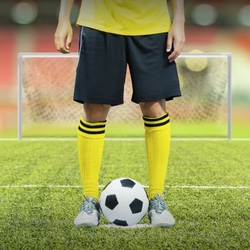Athletics can be an exciting way for children and teenagers to be involved in extracurricular activities. While many parents revel in their child’s successes, they probably also fight the fear of injury looming with every practice and game.
One of the most frightening injuries is when a person gets a concussion, which is a traumatic brain injury. But while the media focuses on the NFL’s struggle to successfully manage the epidemic of concussions, they neglect a vulnerable population – teenage soccer players.
According to a new study in JAMA Pediatrics, concussions are common in middle and high school girls playing soccer. While CDC numbers indicate 173,286 sports-related brain injuries among children, about 50,000 of these injuries occur in middle and high school soccer players. That’s almost a third of childhood traumatic brain injuries, and yet the CDC openly acknowledges that these figures are hard to track so the numbers may be even higher!
However, for anyone familiar with the short-term and long-term repercussions of this injury, the scariest stat is that 58.6% of teenagers who get a concussion continue playing soccer through the symptoms! Many doctors feel that “brain rest” is one of the most important things to do with any athlete suspected of having a concussion. Continuing to play and risk additional injury is dangerous.
It’s clear that recreational and school athletic teams must do a better job of assessing, monitoring, and protecting these young athletes, but it’s also the parent’s responsibility to protect their children. If you have kids, we recommend contacting their school and coaches to make sure both are informed about brain injuries and know how to appropriately assess and treat them.
Additionally, there is more to be concerned about than just the really scary injuries. Physical trauma in sports is very common, and long-term structural changes to the spine can result in chronic pain and dysfunction. That’s why I recommend all children, especially athletes, get checked regularly by a chiropractor to ensure they not only prevent chronic injuries, but also perform at their best!


Recent Comments